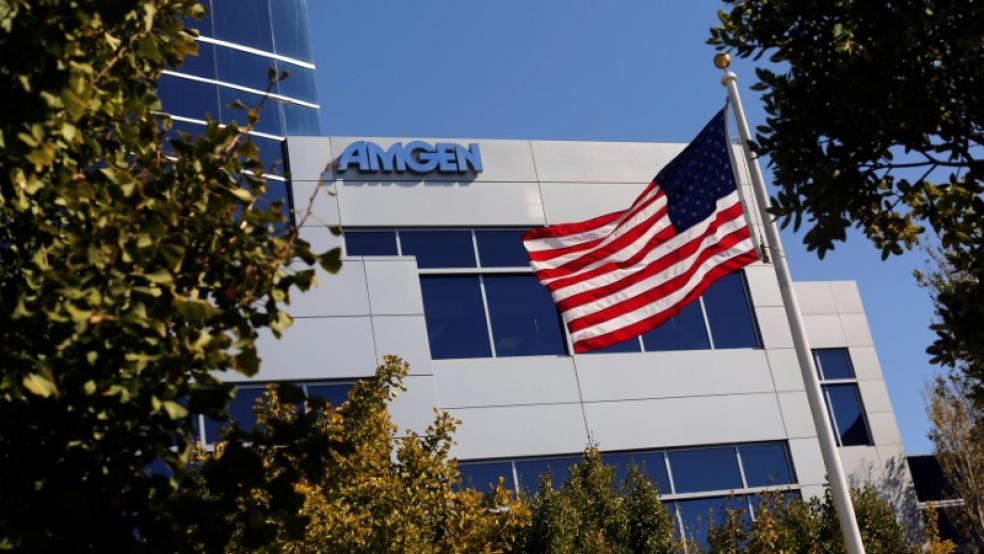(Reuters) - Amgen Inc on Wednesday reported higher-than-expected first-quarter profit as cost controls helped offset a sharp drop in sales of Enbrel, its blockbuster rheumatoid arthritis and psoriasis drug.But an earnings beat based on lower expenses rather than sales growth did not please investors and Amgen shares fell 3 percent to $159.50.Sales of Enbrel, faced with increased competition and slowing growth in the rheumatology and dermatology sectors, dropped 15 percent to $1.18 billion, below Wall Street estimates of about $1.38 billion. Enbrel has traditionally been a growth driver for Amgen, although the company had cautioned that pricing pressure would likely hit the franchise this year."The biggest weakness on the top line was definitely Enbrel. It's in decline," said Cowen and Co analyst Eric Schmidt. Commercial operations chief Tony Hooper said Amgen was optimistic Enbrel sales would rebound in coming quarters and be "a significant cash-flow generator for many years to come." Total sales fell 1 percent to $5.5 billion, shy of analysts' consensus estimates of $5.6 billion.Excluding items, Amgen had adjusted earnings of $3.15 per share, topping analysts' average expectations by 15 cents, according to Thomson Reuters I/B/E/S.Amgen maintained its full-year revenue forecast of $22.3 billion to $23.1 billion. It raised the low end of its adjusted 2017 earnings forecast by 20 cents to $12.00 per share, keeping the top end at $12.60.Total operating expenses fell 8 percent to $2.87 billion.The company's potent new cholesterol drug Repatha, faced with reimbursement barriers from insurers and pharmacy benefit managers, had sales of just $49 million.Data showing Repatha significantly cut the risk of heart attacks and strokes, expected to greatly improve payer and physician acceptance of the expensive medicine, did not come out until late in the quarter and was not reflected in the sales for the period.Chief Executive Robert Bradway said the company would work to improve patient access to a medicine that "can prevent hundreds of thousands of needless and tragic events." Still, analyst Schmidt said, "it's not good when your growth franchise is weak, even if it's early days."Other key medicines performed better, with sales of osteoporosis drug Prolia rising 21 percent to $425 million, ahead of Wall Street estimates of about $415 million.Sales of infection fighter Neulasta rose 2 percent to $1.21 billion, above analyst expectations of $1.13 billion. Amgen is girding for competition from a biosimilar version as soon as the fourth quarter. (Reporting by Bill Berkrot in New York; Editing by Matthew Lewis)

